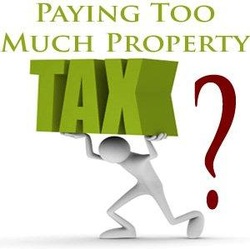
Unfortunately, a bill wending its way through the state Legislature would mess with that success, raise your property taxes and funding the House Speaker’s unproven notion that what Utah schools really need is a tablet in every backpack.
First, let me back up. Some of you may be scratching your heads at the notion that Utah handles property taxes right. I understand the concern. No tax plays with the emotions of people quite like the one that puts teeth in government’s notion of how much your house is worth. People don’t like the idea of a tax sale, no matter
| | no matter how rare it may be, and they don’t like getting a lump-sum bill at the end of each year with the assessor’s name on it. They get emotional enough that sometimes they revolt, as happened in California in the 1970s, leading to a law designed to hold the tax in check. But strip away emotion and it becomes clear that Utahns have managed to keep this tax to a reasonable simmer. Six years ago the Utah Foundation, a non-partisan research group, published a research brief. It found that Utahns paid less in property taxes per $1,000 of personal income in 2006 than they did in 1965. Back then people spent $49.80 for every $1,000 earned. In 2006 they spent $27.11. The tax revolts of the ‘60s and ‘70s helped lower rates somewhat, but it wasn’t until 1985 that a long, steady streak of even tax rates began. That was the year lawmakers passed what became known as the Truth-in-Taxation law. In simple terms, if any government within the state wants to collect more overall property tax money from one year to the next (with a reasonable exception for new construction), it must declare a tax increase, hold public hearings and publish notices in local newspapers. Property taxes are complicated and difficult to predict. However, in general terms the law means that when the value of your house rises, the tax rate you pay declines. Your mileage may vary depending on the neighborhood in which you live and other factors. But the idea is your local government can’t collect more money from you just because the real estate market picks up. Or at least, if the government does collect that money, it first has to let everyone know it intends to do so, then justify the decision in front of what, in my 28-year experience covering politics in Utah, tends to be a heated and thoroughly unpleasant public hearing. SB111, a bill that recently passed the Senate on a close vote, would change that. It would impose a floor on property tax rates for school districts, below which your rate couldn’t drop to accommodate a rise in the value of your house. This would let schools reap what would become a $100 million tax increase over time. Originally, the bill’s sponsor, Sen. Aaron Osmond, R-South Jordan, wanted the extra money to help correct funding inequities that have led to rich and poor school districts statewide. But the bill was amended so that, for the first four years, it would help House Speaker Becky Lockhart pay for her plan to eventually give every student in Utah a computer tablet of some kind to help him or her learn, or play Candy Crush. There are complications to this, including reports that Lockhart herself opposes using the tax increase for her initiative. But these complications have little to do with the main problem here. If state lawmakers want to raise taxes to help kids in poor school districts or to give everyone an iPad, they should do so in a straightforward manner. What they should not do is chip away at a law that helped bring property tax rates in Utah from among the highest in the nation 50 years ago to among the lowest today. The beauty behind Truth-in-Taxation is that politician are forced to stand up and justify tax increases, and sometimes these are indeed justifiable. State lawmakers shouldn’t try to avoid that same kind of accountability. |

 RSS Feed
RSS Feed

